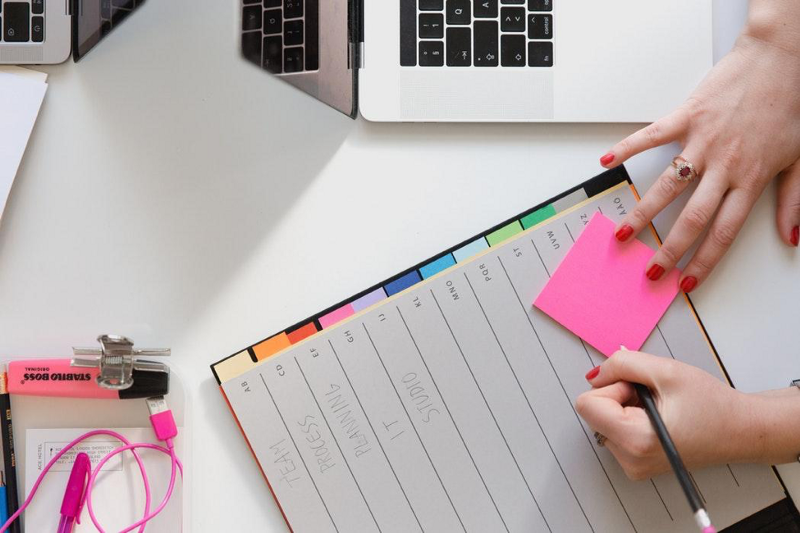How to Seem Calm, Cool, and Collected on Video (Even When You’re Not)
From video interviews for remote jobs to team conference calls once you’re hired, learn how to act natural on-screen during a video call and boost your confidence now.

Are video calls the bane of your work life?
Now that more people are considering remote work, there’s no getting out of video conferences these days.
From your initial video interview and remote team meetings to giving presentations to clients across the globe, you’re always connected despite the myths about working remotely being isolating.
All you need to do is practice a few confidence-boosting tips and you can minimize your awkwardness during a video call and come off as your best professional self.
How to Boost Your Confidence On Camera
Sitting around a conference room chatting with your colleagues is way less pressure than a formal video call where you’re all on your own behind a screen.
These tips will help you get more comfortable:
Practice With Your Video Platform
There are tons of professional video conferencing platforms and apps your team may be using. So your first step in appearing like a pro is to learn which one everyone will be using.
Then you’ll want to familiarize yourself with all the ins and outs of your video client, such as how to control the volume, put yourself on mute when others are talking, share your screen, etc.
Practice a test call with one of your friends or teammates before your actual call and make sure they can hear and see you well.
This is also a good opportunity to practice where to look.
Look Straight Into the Camera and Maintain Eye Contact
Contact When you have a conversation with someone in person, you maintain eye contact to show you’re paying attention.
You have to do the same when you’re on a video call.
Only instead of looking in your colleagues’ eyes, you’ll be looking directly into your webcam or camera.

If you can’t keep from looking at your computer screen, move the video box directly under your camera so you can do both at the same time without appearing distracted.
Another distraction is using too many hand gestures when you speak.
Minimize Your Hand Gestures
If you tend to talk with your hands, you’ll need to sit on them during your video call.
Not only can your movements on camera be a huge distraction to what you’re saying, they can also cause a blurry picture of yourself if your connection lags at any given time.
Additionally, too many hand gestures can make you seem frantic, nervous, or scattered to those on the other end.
Another way to stay focused and seem like you have it all together is to have a few notes prepared beforehand.
Prepare a Few Notes
Jot down a few notes regarding the topic of your video call and keep them handy to reference later.
You don’t want to stare down at this list, but it will give you more confidence knowing you have this cheatsheet should you need it.

If you’re really nervous, print out a few awesome compliments your coworkers or clients have shared about you, or keep a few inspirational quotes around your screen, to help ease your nerves and give you more confidence.
This next confidence booster may surprise you.
Brush Your Teeth
Did you know people have more confidence after they brush their teeth[*]?
First, brushing your teeth tells your brain you’re ready for close conversations. You don’t have to feel self-conscious about your bad breath if you’re minty fresh, after all.
Even though you’re not going to be within smelling distance of those you’re speaking with, you may subconsciously open up and feel more confident discussing the topics of your call.
Similarly, brushing also whitens your teeth and helps you get rid of food particles blemishing your smile. So you’ll naturally smile wider and more often.
And since your smile is one of the first things people notice about you, a flash of your pearly whites may put more than you at ease.
Your posture also has a lot to do with your confidence and how people perceive you.
Develop Better Posture
People who have excellent posture not only stand and sit taller in their chairs, they appear more confident and capable.
If you’re constantly slumped over a keyboard or craning your neck staring at your phone, your posture is going to reflect this.
To develop better posture:
- Imagine someone holding a string from the top of your head to your lower back. In your chair, sit tall and imagine that string going completely taut instead of slacking with your poor posture.
- Bring your shoulders down and back. This will feel a bit weird, but untense your shoulder blades and let them relax down from your ears and back away from your chest.
- Raise your chin and look straight. Looking down forces your shoulders to round and hunch instead of relaxing down and back.
- Exercise. Lat pull downs, dumbbell rows, planks, yoga, and several other activities and workouts will strengthen your muscles and lead to better posture in time.
Another major benefit to having better posture is less lower back pain so it’s a true win for those confined to a desk all day too.
Moving around is also great for releasing nervous energy before your call.
Get Your Body Moving Even though remote work may be a better fit for you to get in shape, you may not be exercising right before your call — and you definitely should.
When you get your blood pumping, you rid your body of all your nervous energy before your call and come off as relaxed instead of twitchy or anxious.

Plus, science says walking in nature releases this excess energy, calms your brain, and lowers your anxiety too[*].
You may also want to try “power posing” and stand like a strong superhero before you get on camera[*].
All this activity will make you appear calm, cool, and collected because you actually are.
And that will make this final tip easiest of all.
Slow Down, Take Deep Breaths, and Smile If you’re nervous on your video call, your voice will get higher and you’ll start talking faster than you normally do.
These are two red flags you’re not as chill as you want to be.
The antidote to this behavior is slowing down and taking deep breaths while you’re speaking and listening. It also doesn’t hurt to smile every now and again — both for you and everyone else on your call.
If you can make it through a video call using these tips, you’re definitely ready for remote work and beyond.
You’ve Got This! Video calls can be nerve-wracking, but they don’t have to be if you practice the tips in this guide.
With your newfound video conference skills, you’ll feel confident enough to find your perfect remote position and nail the interview process instead of fearing it.
So keep visiting We Work Remotely for jobs that aren’t restricted by commutes or a specific location until you snag the role you were made for.